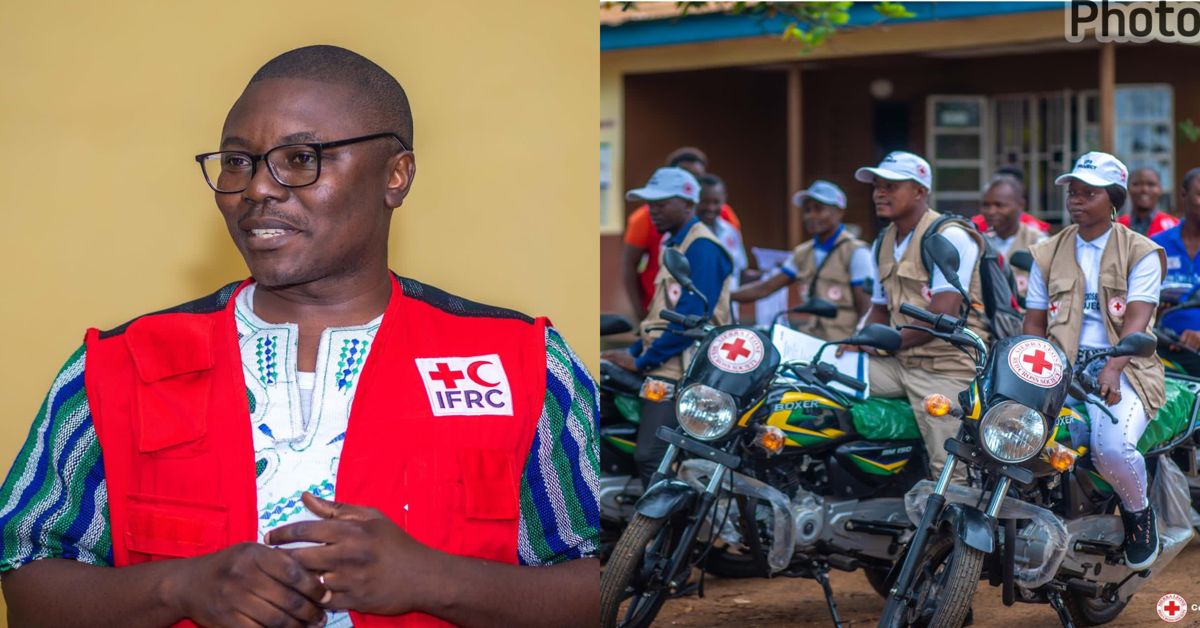The Sierra Leone Red Cross Society (SLRCS) officially issues over seven motorbikes to volunteer field supervisors in the Kambia district as part of the Community Epidemic and Pandemic Preparedness Program (CP3).
The ceremony took place at Edison Hall in Kambia, at the Red Cross branch office in the presence of representatives from the SLRCS National Governing Board, staff, and management from the headquarters and the International Federation of Red Cross and Red Crescent Societies (#IFRC), officials from the Ministry of Environment, the District Medical Officer, and One Health Partners.
It was stated that these motorbikes were provided by the International Federation of the Red Cross and Red Crescent Societies, with funding from USAID. The bikes will assist the National Society in implementing the ongoing CP3 program in Mambolo, Tonko-limba, and Samu chiefdoms, and in Penguia, Kissi Teng, and Malema chiefdoms in the Kambia and Kailahun districts.
The SLRCS stated in their page that the primary objective of this program is to empower communities by training community-based surveillance volunteers and supervisors in disease prevention controls, early detection, and referrals, with the ultimate goal of minimizing the impact of any disease outbreak in borderline communities in the country.
At the end of their post they stated that “To enhance the mobility of our dedicated field supervisors, these motorbikes will enable them to reach remote areas more efficiently and effectively. This means that they will be able to provide timely support and guidance to their communities, ensuring that they are equipped with the necessary knowledge and resources to combat diseases. The SLRCS is deeply grateful for the support and collaboration of our esteemed partners, including the International Federation of the Red Cross and Red Crescent Societies, and USAID. Together, we are working tirelessly to strengthen the resilience of communities in the face of health crises. Through initiatives like the CP3 program, we are building a network of trained supervisors who will serve as the first line of defense against epidemics and pandemics.”










 Post a comment
Post a comment









Comment(s)
Disclaimer: Comments expressed here do not reflect the opinions of Sierraloaded or any employee thereof.
Be the first to comment